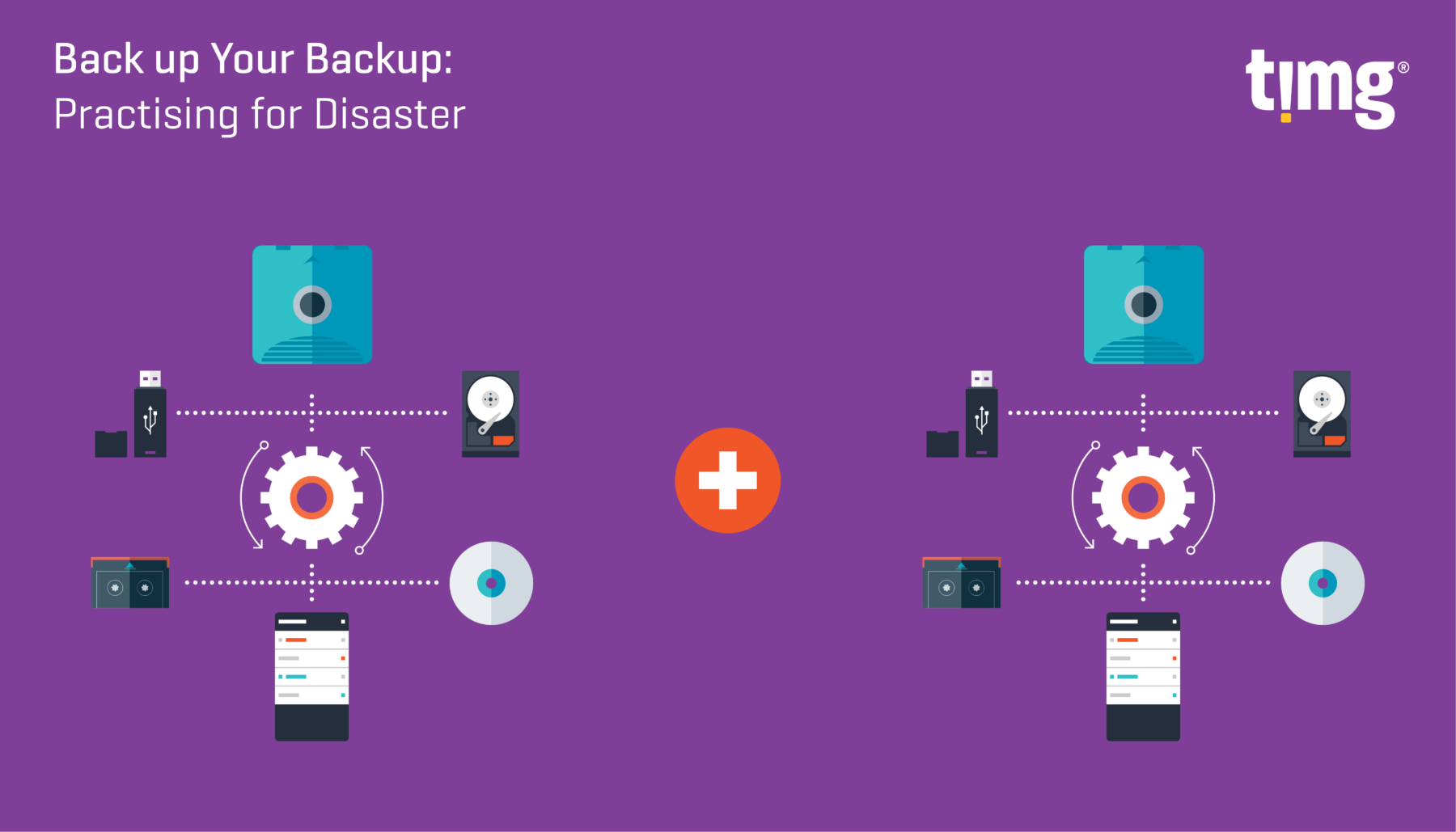Back up Your Backup: Practising for Disaster
“Copy the Copies!” …. “Back up Your Backup!” It takes many copies of files stored on separate pieces of media to fully ensure that prior work can be recovered. Redundancy is security. In order to…

“Copy the Copies!” …. “Back up Your Backup!”
It takes many copies of files stored on separate pieces of media to fully ensure that prior work can be recovered.
Redundancy is security. In order to achieve it, simply use multiple pieces of media. Multiple copies of data on a single piece of media still leave that data at risk. Data security is achieved only through media redundancy on reliable media.
Duplicating all full backups, including weekly backups, is ideal since this is generally the only existing full record of everything that has happened. The loss of a weekly full backup just prior to the next one means that your most recent complete record of all files is two weeks old.
Duplication is especially critical for those tapes that have longer retention periods. Therefore, at a minimum, monthly, quarterly and yearly tapes, all or some of which may be archive tapes, should be duplicated, since the loss of a single copy of one of those tapes can have a significant impact on the business.
Finally, at least two copies of any long-term archive tapes should be placed in separate vault sites for maximum protection. A third duplicate can be made and kept on site for quick restores. Find out more about proper backup media storage here.
Duplication vs. Cloning
The best possible form of duplicating your data is to create multiple copies in real time, as the back up is occurring. This is the highest level of data protection. Duplication can also be done at the completion of a back up, sometimes called cloning. It may even occur the following day. This is usually when there are not enough tape drives available for online duplication. Though less costly, it is also less ideal, as there is a window of time when only one copy of the data is available. Therefore, if practical, it is better to create duplicates during the back up. However, creating duplicates anytime is preferable to not creating them at all.
Trial Restores
Your back up isn’t successful until you’ve secured your data. We urge our clients to perform a trial restore periodically to ensure that you can recover the data completely and quickly.
It’s surprising how many businesses, diligent about backing up, neglect this simple step. The reality is, reading data is not the same as writing it, and despite best efforts, failure happens.
Can you afford to be surprised? Conduct a spot ‘disaster check’ from time to time, just as emergency personnel in communities nationwide practise their response for disasters of all magnitudes.
When is it Safe to Overwrite your Backup Tapes?
Now that you feel prepared to tackle a disaster, what about those old tapes that are never used? We are often asked if it is safe to repurpose old tapes. And the answer isn’t a straight yes or no.
An important rule to keep in mind is that data must be restorable to a current state for core business continuity, or to a point-in-time for audit purposes. In fact, some regulatory requirements may mandate specific retention schedules other than what’s outlined below, though these are good general guidelines:
The Three-Week Rule
You should be able to restore a version of a file from any workday for the past three weeks. To do so, you must back up core data daily, and maintain at least three full weeks of version history on unique media. No tape should be overwritten for three weeks, including daily incrementals!
Weekly Full Back Up
Weekly back ups should be performed on operating system data, content data, configuration files, registry files and application software data. Weekly data should not be overwritten for at least one month. This set of data should be considered for duplicates.
Monthly Full Back Up
Like the weekly full back up, this monthly activity needs to include all data content and files, which cannot be overwritten for at least one year. This data should be duplicated as well.
Annual Full Back Up
In this case, all data and files are vaulted off site immediately, where they are typically retained many years as specified by the company’s regulatory demands. This data must be duplicated.
Remember, your data is only as safe as the media it is stored on. Getting your tapes sorted and stored properly is a cost-effective way to ensure business continuity.
 Your browser is very old. It's so old that this site will not
work properly as it should.
Your browser is very old. It's so old that this site will not
work properly as it should.